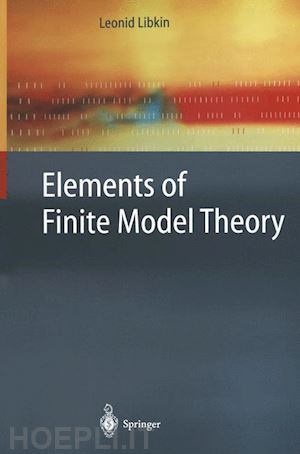
Questo prodotto usufruisce delle SPEDIZIONI GRATIS
selezionando l'opzione Corriere Veloce in fase di ordine.
Pagabile anche con Carta della cultura giovani e del merito, 18App Bonus Cultura e Carta del Docente
The author has been with the department of computer science at the University of Toronto since 2000. Prior to that, he was a researcher at Bell Laboratories, and he spent two years visiting INRIA in France. His research interests are in the areas of database theory and applications of logic in computer science.
He is coauthor/editor of:
Constraint Databases
Kuper, G., Libkin, L., Paredaens, J. (Eds.), 12.04.2000, ISBN 3-540-66151-4
Finite-Model Theory and Its Applications
Grädel, E., Kolaitis, P.G. (et al.), 07.2004, ISBN 3-540-00428-9
Semantics in Databases
Thalheim, B., Libkin, L. (Eds.), Vol. 1358, 25.02.1998, ISBN 3-540-64199-8











Il sito utilizza cookie ed altri strumenti di tracciamento che raccolgono informazioni dal dispositivo dell’utente. Oltre ai cookie tecnici ed analitici aggregati, strettamente necessari per il funzionamento di questo sito web, previo consenso dell’utente possono essere installati cookie di profilazione e marketing e cookie dei social media. Cliccando su “Accetto tutti i cookie” saranno attivate tutte le categorie di cookie. Per accettare solo deterninate categorie di cookie, cliccare invece su “Impostazioni cookie”. Chiudendo il banner o continuando a navigare saranno installati solo cookie tecnici. Per maggiori dettagli, consultare la Cookie Policy.